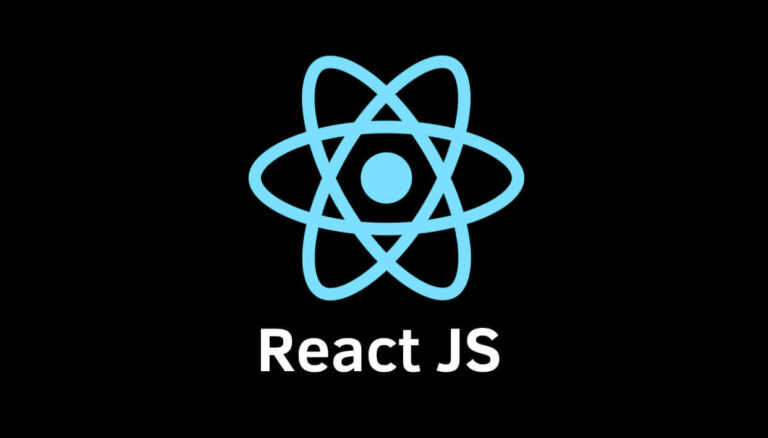How To Become A Data Scientist
Looking for the best way to become a data scientist? Here are 3.

Data science is an interesting multi-disciplinary profession with good compensation, so it pays to learn how to become a data scientist.
Becoming a data scientist is not easy though, because the industry is stiff with competition. So, you need to be at your best game to stand out and succeed.
This guide shows you how to become a data scientist using any one of three methods, depending on your situation.
Tips On Becoming A Data Scientist
With data science being highly competitive, you need to do everything in your power to succeed. So, the following are some tips to help you along the path to becoming a data scientist:
- Choose the right role and become an expert in it.
- Choose specific tools and become an expert on them.
- Study programming and databases as early as possible.
- Seek out like-minded people to network with.
- Seek out a mentor or follow notable data scientists on social media.
- Practice to perfection by building projects.
- Let your portfolio stand out.
Why Data Science?
Data science is the field that answers questions for organizations using data. A data scientist collects data and analyzes them in ways that produce patterns that can aid businesses to make the right decision.
The data science field is important to a range of businesses because it lets them uncover insights, forecast future outcomes, improve product offerings, and stay on top of innovations and their respective industries.
As a result of the continued growth of data from computer networks and the Internet, the data science field remains in continuous growth, as more companies attempt to squeeze as much profit as they can using insights from data scientists.
Must-Have Skills
Becoming a data scientist is not a walk in the park. You must develop the right multi-disciplinary skill set required to produce results.
The following are the major skills you must aim to have or develop on your journey to becoming a data scientist.
- An Analytical & Problem-solving Mind – The very first requirement.
- Coding Skills – Ability to code in Python, R, SQL, and others.
- Database Management – Know-how to store and retrieve data.
- Data Analysis – The ability to gain insights from data.
- Data Visualization & Communication – The ability to present findings intuitively.
The Different Data-Science Job Titles
Data science is a broad field and it might continue to broaden over time, as new specializations evolve. So, as you work towards becoming a data scientist, you should examine the different job titles to discover which might be best for you.
The major data science job titles include:
- Data Scientist – The general description, involves all the steps, including data gathering, storage, modeling, analysis, and presentation.
- Data Analyst – Focuses on gathering, cleaning, and storing data. As well as analysis and reporting on the data, when needed.
- Data Engineer – Principally focused on data-related tasks, such as data gathering, cleaning, preparation, and data infrastructure maintenance.
- Data Architect – Develops the company’s complete data management architecture by focusing on the business needs of the organization.
- Data Modeler – Focused on developing data models that are then implemented through the database.
- Marketing Scientist – Uses insights from data science to improve the company’s marketing efforts.
- Machine Learning Engineer – This role focuses on designing and developing software and algorithms to automate AI predictive models.
- Database Administrator – Focuses on maintaining the organization’s database server.
Becoming A Data Scientist
There are 3 major ways to become a data scientist, depending on your competence and stage in your career. The first method is by getting a data science bachelor’s degree, the second is by earning a master’s degree in data science, and the third is becoming a data scientist without a degree.
These various methods are explained below:
Becoming A Data Scientist With A Degree
- Earn A Data Science Degree – You can study data science at the university and graduate with a data-science degree, which should give you an edge in the job market. You should note, however, that the data science profession remains a competitive field and this means that you will still have to put in some effort to land a good job.
- Learn & Practice Interview Skills – To improve your odds of landing your dream job, you will need to practice your interview skills as much as you can. Many online platforms offer interview courses, while others provide lots of free sample questions.
You will also need to do some research on the companies that you are applying to, as well as your target job title. Practice answering the test questions, dressing, and speaking well. - Find An Internship – Having a data science degree is one thing, having practical working experience in the field is another. So, try to find an internship and gain relevant experience. Websites like LinkedIn and Internships.com can be of great help here.
- Build A Portfolio – The best way to land a dream job is to have an impressive portfolio. So, make it your duty to develop private, useful, and relevant projects, then showcase them on the web and link to them each time you apply for a job.
- Hunt For Jobs – Finally, you have to go out there and find jobs, apply for positions, and hope for interview appointments.
Becoming A Data Scientist With A Masters
- Earn A Degree In A Related Field – If you already have a degree in a related field, such as Mathematics, computer science, statistics, and so on, then you can also continue in the data science field with a master’s degree.
- Earn A Masters In Data Science – Many schools offer data science master’s degree programs with a 1-year average full-time duration. So, choose and move on.
- Learn & Practice Your Interview Skills – While degree programs are designed to bring you up to speed, it’s still in your best interest to practice, practice, practice. At best, with sample projects.
- Gain Some Experience – From taking a related job to working for less, there is no substitute for practical experience.
- Build A Portfolio – You may also need to develop useful and relevant projects that you can showcase on the web and link to in each job application.
- Hunt For Jobs – Finally, you also have to go out there and search for jobs, apply for positions and await interview appointments.
Becoming A Data Scientist Without A Degree
- Learn The Relevant Skills – Though the industry is tough, you can still become a data scientist without a degree. But you will need to be very good and work hard to break into the industry by learning all the necessary skills on your own.
- Take A Course Or Attend A Bootcamp – Taking one or more courses or bootcamps will help to boost your proficiency, as well as give you more experience in the field.
- Get Professional Certifications – Professional certifications will help your job search by making it clear that you are putting in extra effort to be as good and relevant as possible. However, building a portfolio is equally as important.
- Build Your Portfolio – You need a portfolio that stands out and shows your capabilities in practical terms. Look for projects with a useful application, and projects that can showcase your talents and skills, then host them on a platform like GitHub for all to see.
- Hunt For Jobs – Finally, you will need to search and apply for jobs, probably with more zeal than those with traditional degrees.
Frequently Asked Questions (FAQS)
Who do data scientists work for?
Data scientists work for all types of companies with the ability to derive profitable information from data.
Are data scientists real scientists?
Yes, data scientists are real scientists because they apply scientific methods and processes to get results.
Why is data science called the sexiest job?
Data science is hot because data scientists are in hot demand and the pay is good.
Can a data scientist work remotely?
Yes, a large amount of data scientist positions are remote.
Who can become a data scientist?
Anybody with the right skill set and focus can become a data scientist.
Can a data scientist become a data analyst?
A data analyst is a type of data scientist, so yes.
Will data science become obsolete?
Not in the immediate future.
Conclusion
Reaching the end of this guide on how to become a data scientist, you have seen the different ways to make it happen and the different steps to take.
Data science may be competitive, but the good pay makes all the trouble worth it. So, if you consider yourself fit for the struggle, then go for it, and good luck!





